Mao Zedong, infamous 20th-century Marxist theorist and founder of the People’s Republic of China, was apparently also a poet.
Whether wondering where the yellow crane had disappeared to, describing the cries of geese, or pondering the mountain passes, Chairman Mao seems to be a lover of nature in his poetic persona.
The Poet Turned Nation Reformer

It is certainly, then, a strange contrast to think that he also created a kind of “war against nature” during his reign that resulted in the deaths of 1 billion Eurasian tree sparrows.
What’s more is that the campaign against the natural world would have extreme repercussions for the Chinese people, whom Mao inspired and mobilized to inadvertently bring catastrophe upon themselves.
Mao Zedong’s War Against Nature

In a book titled Mao’s War Against Nature, Judith Shapiro paints a portrait of the extreme doctrine Mao carefully inculcated in the Chinese people.
She writes, “Maoism constructed a world that pitted humans against nature….” This otherworld that Mao crafted was created through an elaborate mixture of propaganda and promised utopian results.
The Great Leap Forward
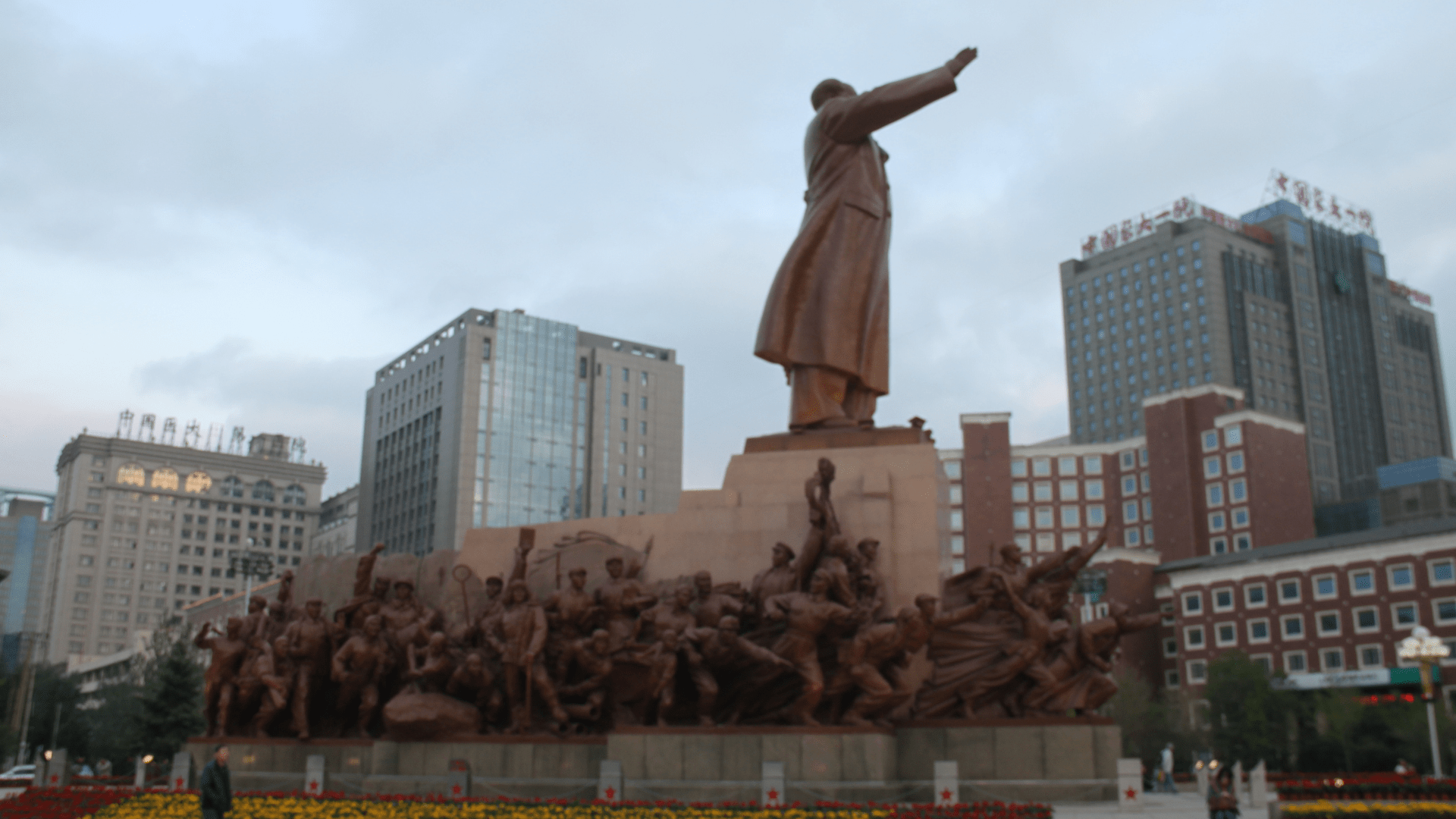
Mao’s so-called “Great Leap Forward” occurred between 1958 and 1962. While the intention was to rapidly change China from an agrarian society to a modern, industrialized one, the plan failed in many significant ways.
Millions of Chinese citizens were moved into communes to help with the agricultural efforts and manufacturing. The idea was to create enough food to support a booming manufacturing sector.
Things Didn’t Go as Planned
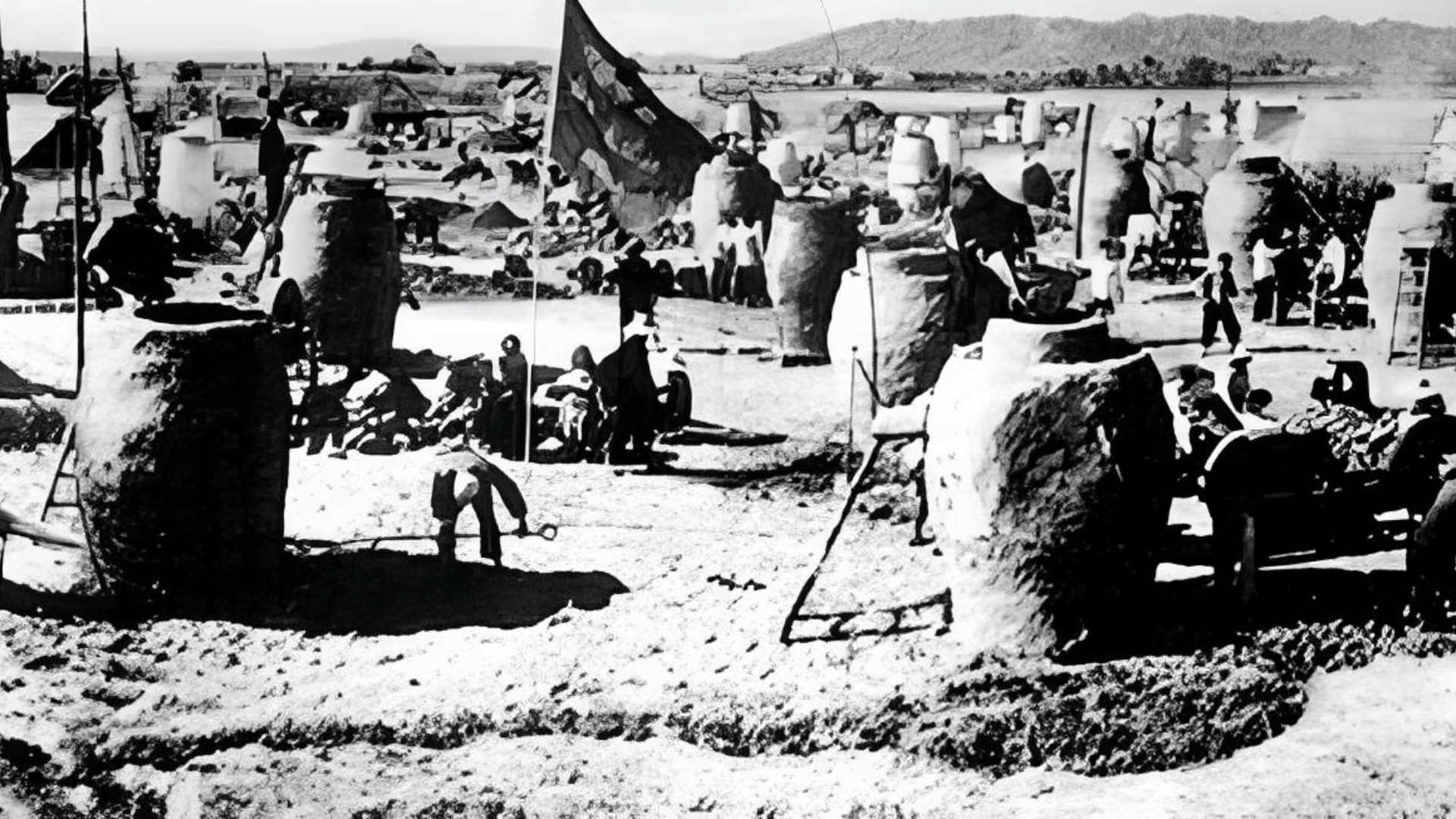
Unfortunately, the Chinese regime relied on counterproductive farming techniques adopted from the Soviets. This was catastrophic. Many acres of farmland were damaged and food production dropped instead of improving.
In pursuit of freeing China from the need to import foreign steel, families were also asked to set up backyard smelting furnaces. Unfortunately, the quotas placed on these families were often extremely difficult to meet, forcing them to smelt low-quality metal and create products that were completely unusable.
Environmental Disaster and Starvation

The environmental repercussions of the terrible farming techniques and the backyard smelting projects were significant.
A large amount of once-useable farmland was left without nutrients and became vulnerable to erosion. Deforestation occurred in an effort to fuel the fires for all of the backyard smelters.
And Then the Sparrows Began to Die
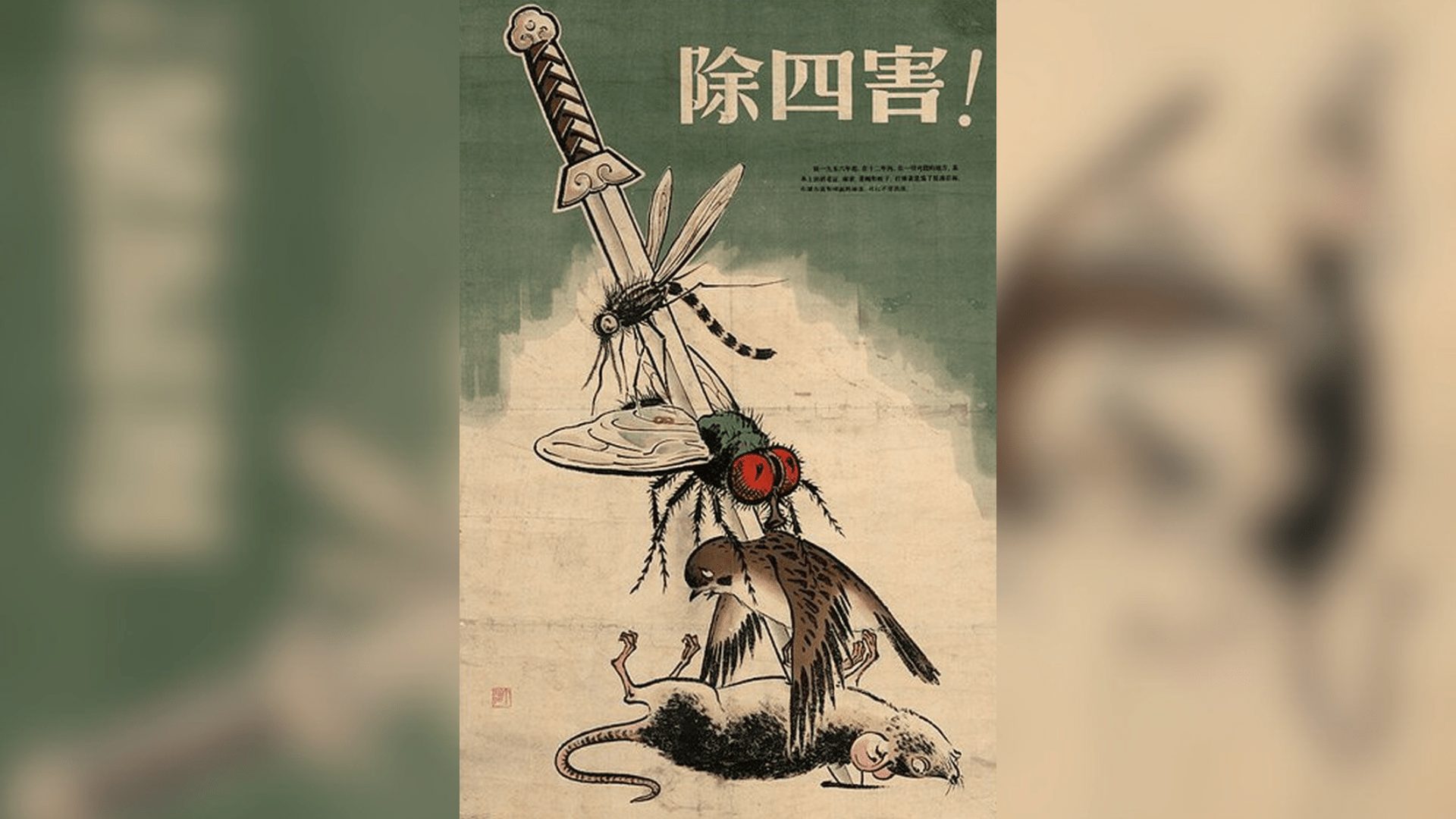
If all of this wasn’t bad enough, Mao also decided to order a wholesale extermination of flies, mosquitoes, rats, and sparrows in a country-wide hygienic movement called the Four Pests campaign.
Citizens were ordered to shoot sparrows, tear down their nests, kill fledglings, and make a racket with kitchenware until birds died of exhaustion. The intent was to keep them from nibbling away at grain and thus negatively affecting the agricultural efforts.
Mao Didn’t Know the Sparrows Were Pest Control
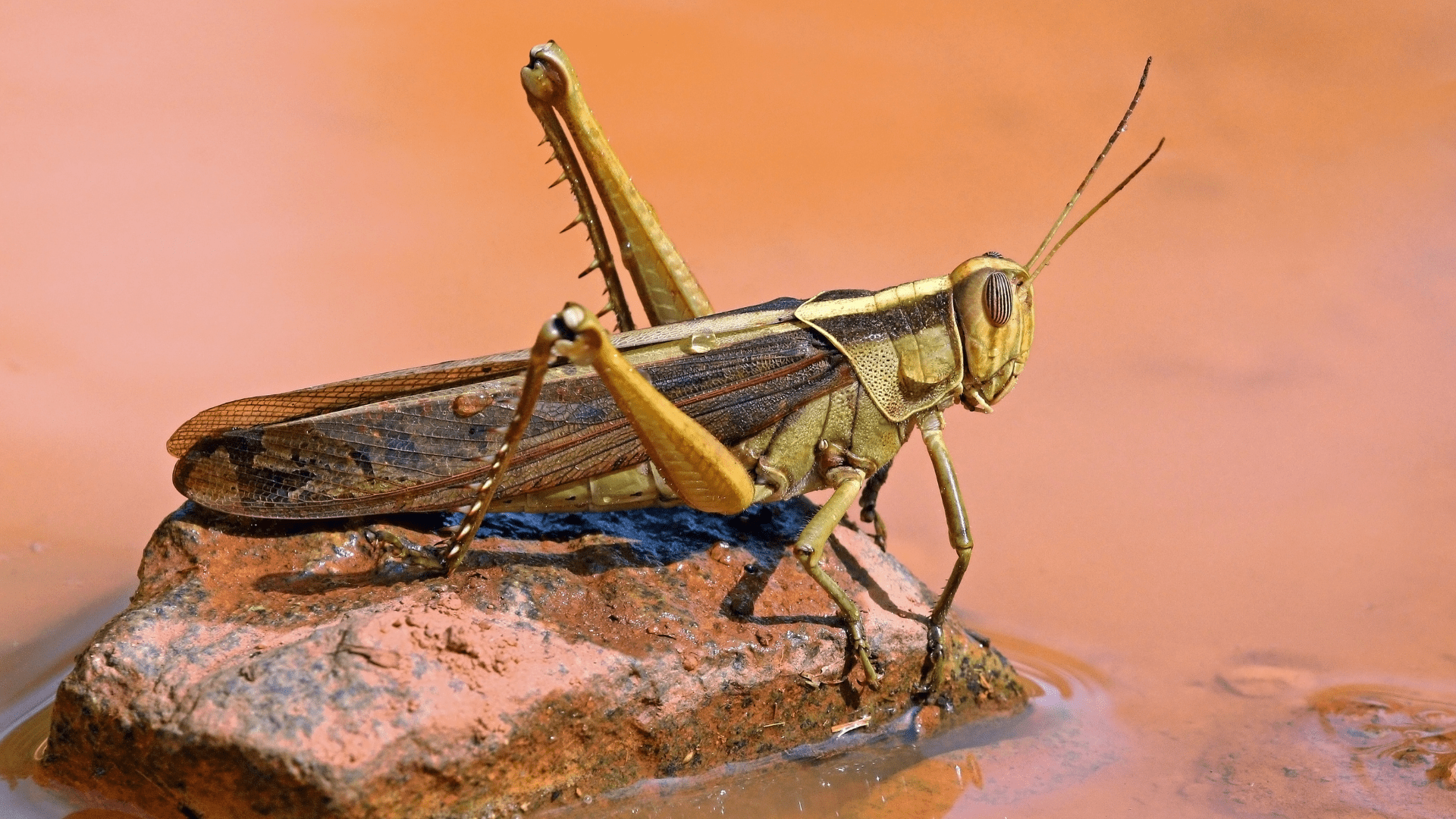
The Four Pests campaign followed the home smelting and mass farming efforts into the dustbin of history. It failed and miserably backfired.
What Mao had not realized was that the sparrow population in China was an integral part of crop production, as the sparrows not only nibbled at grain but ate the insects on them. The deaths of sparrows led to an increase in grain-eating insect populations.
Death of Sparrows Let Insects Run Free
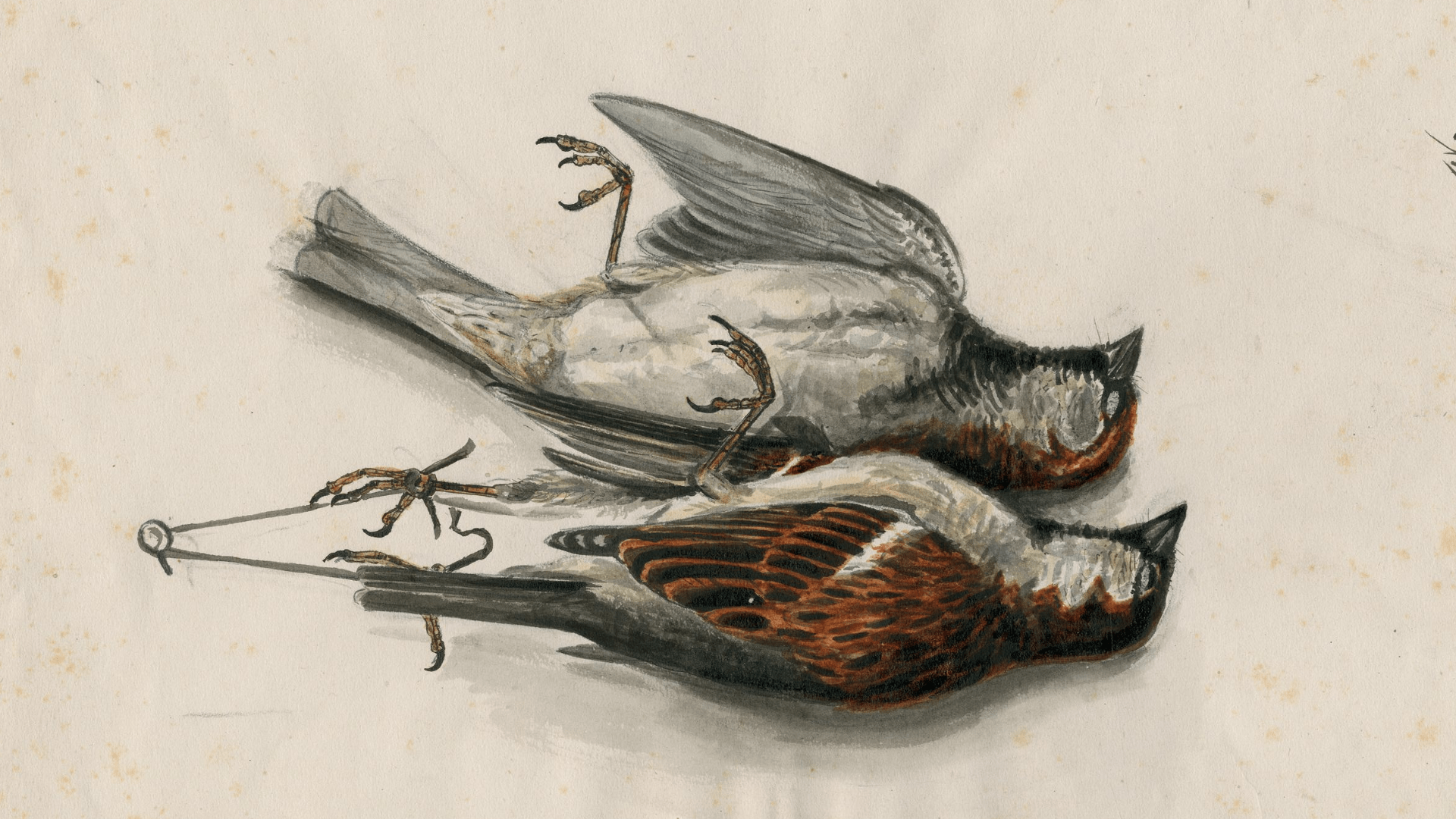
The mass extermination efforts of the Chinese people left hundreds of millions, even possibly 1 billion, sparrows dead. They rendered this bird’s population almost extinct across the nation.
The unintended side-effect, due to the sparrow’s aforementioned role in crop health, was that crop-hungry bugs roamed free across the country, ravaging agricultural efforts in their wake.
The Great Famine
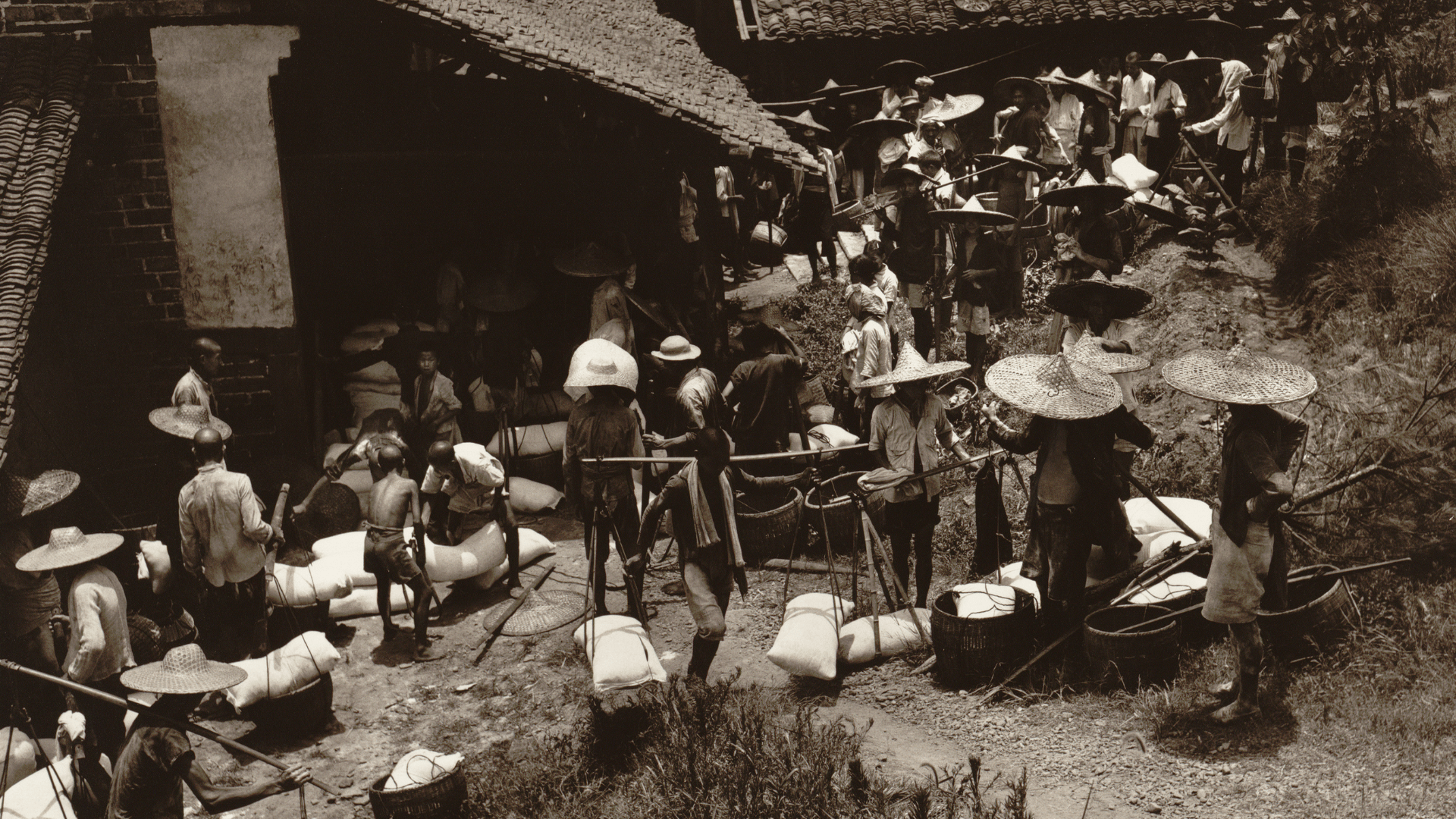
There was substantial, compounded ruin left in the wake of failed farming techniques, unusable crop land, and the corpses of a billion sparrows. It induced a nationwide famine, known as the “Great Famine.”
This famine primarily affected victims across the Chinese countryside, but resulted in a staggering number of deaths. Scholars put the death toll between 14 and 45 million.
Terrors of the Famine

The Great Famine of 1959-61 was the largest famine in human history. As we have seen, it was largely manmade and ideologically motivated. The Chinese officials were brutal in implementation and remained largely unsympathetic to the sufferings of their citizens.
Children begging for food were taken into the mountains, deserted, and left to die of exposure. Teenage children cannibalized their younger siblings in absolute desperation. People were buried alive for reporting failed harvests. Others were driven insane.
The Famine is Suppressed

Perhaps unsurprisingly, the famine has been suppressed across Chinese institutions. It is downplayed and referred to as the “Three Years of Difficulties.” The Great Famine has not been openly analyzed or discussed in the nation where it occurred.
Likewise, the largest famine and its root causes have not seen much investigation in the West outside of small circles of academics and intellectuals with special interests in China. However, writers such as Yang Jisheng, author of Tombstone, are attempting to bring more attention to this horrific event. Hopefully the future will see this monumental disaster more clearly and learn from its consequences.
